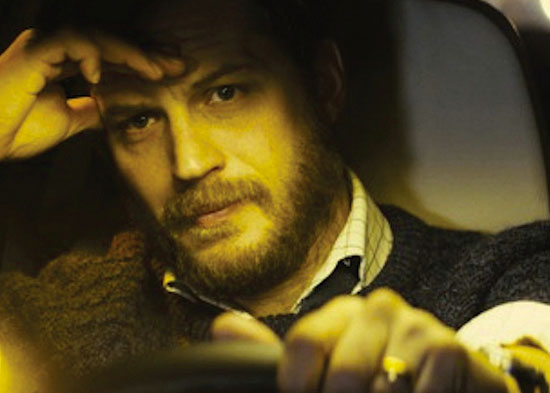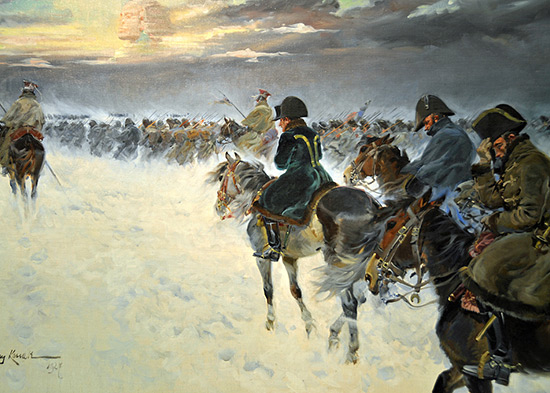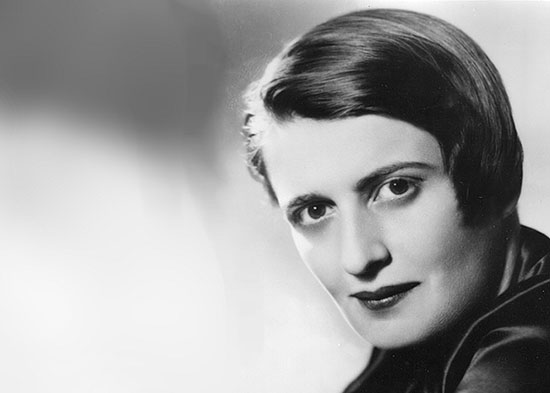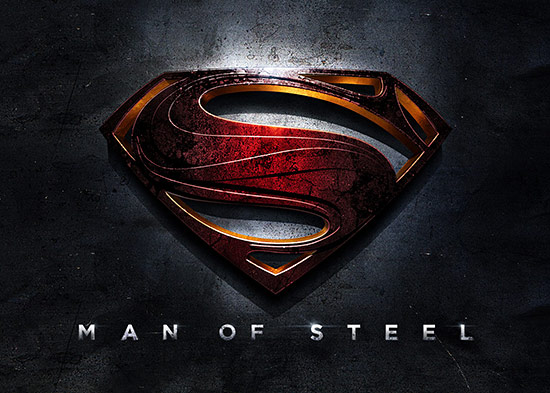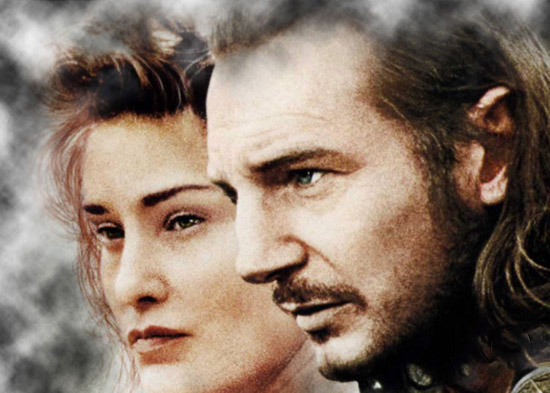BY JOHN CHRISTMAS
We’ve long known the rock band Rush was influenced by Ayn Rand’s writings, including her sci-fi novelette Anthem. Now lyricist Neil Peart and co-author Kevin J. Anderson have written their own sci-fi/fantasy novel, itself inspired by a new Rush album. But how do the book — and the associated album — stand up to the legacy of Rush’s classic work?
It’s common knowledge that the rock band Rush was influenced by Ayn Rand’s philosophy. Drummer and lyricist Neil Peart got singer Geddy Lee and guitarist Alex Lifeson interested in Ayn Rand’s writings in the 1970s. The result was a string of songs — including entire concept albums — featuring themes of individuals breaking free from collectivist society.
In June 2012, Rush released its 19th studio album, Clockwork Angels. I am always skeptical when a great band gets older and keeps releasing new albums. How can the new albums possibly compare favorably to the old albums? But I was pleasantly surprised by Clockwork Angels. Musically and lyrically, to me, the new album stands up well against the band’s older work.
Of course, the musical battle between a guitar-wielding rebel and galaxy-ruling clerics in the classic Rand-inspired album 2112 may never be matched. But the new album has its own individualism-versus-collectivism theme, and approaches that theme from fresh angles.
The book contains several elements: the novel, the lyrics from the album, and an afterword.
And there is something completely new and appealing for book lovers, as well: Peart helped write a novel based on the album. Clockwork Angels: The Novel was released in September 2012.
The book contains several elements: the novel, the lyrics from the album, and an afterword. If you choose the print edition or Kindle edition, you can see artwork by long-time Rush album-cover artist Hugh Syme. If you choose the audio edition, you can hear Peart himself doing the narration.
Peart explains important background information in the afterword. He began discussions about a joint music and literary project with his friend Kevin J. Anderson 20 years ago. In 2010, they finally got started on a project: a novel to go with the Clockwork Angels album.
Anderson is a veteran sci-fi writer. His first published novel, Resurrection, Inc., came out in 1988. It was unofficially inspired by the Rush album Grace Under Pressure. More recently he is best known for his spinoff Dune and Star Wars novels.
Peart, having written the album lyrics, provided the skeleton of the plot and characters to Anderson. Anderson then used his story-building skills to fill out the novel. Their back-and-forth collaborative process went on for 18 months until the novel was completed.
Peart lists multiple literary influences in the afterword. Most prominent is Voltaire’s Candide, which provided the archetypal plot of an optimistic youth who sets out on adventures. The youth gets disillusioned but is happy to have experienced the adventures. Later in life, he winds up living on a peaceful farm. As I read Clockwork Angels: The Novel, before I reached the afterword, I thought of similar stories, including the legend of Cincinnatus and the history of George Washington with a hero fighting tyranny and winding up on a peaceful farm.
The novel fits into the “steampunk” sub-genre of science fiction, venturing into the fantasy genre as well.
The novel fits into the “steampunk” sub-genre of science fiction, venturing into the fantasy genre as well.
The authors created an alternate world where some things are futuristic and some things are archaic, suggesting science has progressed in a different way from how it has progressed in our world. Peart names Jules Verne and H. G. Wells as influences for this steampunk style.
Long-dead authors Verne and Wells were not, technically speaking, steampunk because a steampunk author is a modern author trying to write as if he were writing about the future from the viewpoint of someone like Verne or Wells. As such, the modern writer Terry Pratchett is even closer to the style of Clockwork Angels: The Novel.
However, Pratchett seems to write in steampunk style for the purpose of providing pure entertainment. Anderson and Peart use the style to communicate certain target themes.
The quality of Anderson and Peart’s writing is excellent. The pace is good. I didn’t find any slow, boring, or pointless sections. The prose gives a sense of movement, fitting nicely with the music, which, of course, I was playing while I read.
Clockwork Angels: The Novel is about a protagonist named Owen who, on the eve of his 17th birthday, is about to become a man in the collectivist society where he lives.
His whole life is being planned for him by the government: He will always work in the apple orchard in his home village, Barrel Arbor, and his love partner will be neighborhood girl Lavinia. He has no access to money and no use for money in the command economy, which provides people with plenty of apples but not much else.
We soon learn that Owen is special. He is different from the other people in the village. He is the only one with curiosity. He is the only one who refuses to live his life according to the dictates of the overlord Watchmaker.
Owen comes to a critical juncture in his life as he observes a flying “steamliner” racing past Barrel Arbor, bound for Crown City. Should he stay at home and await instructions from the Watchmaker about how to live his life, or should he break free by jumping on the steamliner and heading into the exciting capitol?
The prose gives a sense of movement, fitting nicely with the music…
Of course, Owen exercises freewill and chooses to jump on the steamliner. Otherwise, there wouldn’t be any novel.
He explores the world, including not only Crown City but also Poseidon City and the Seven Cities of Gold. He has experiences of profound wonder and disillusionment, including meeting a new woman, Francesca, and an alternative leader, the Anarchist.
I followed the novel through three main thematic lines. First, Owen is a person not content to follow instructions and believe propaganda but rather intent on learning about the world through exploration and observation. Second, Owen learns to be selective about whom to fall in love with. Third, there is a struggle going on in Owen’s world between order and chaos.
The first theme is a debate on the merits of conforming and staying at home versus rebelling and venturing forth. This is also a debate between going through life accepting what you are told versus insisting on direct observation of reality as the path to discovering the truth.
I perceived that the authors were trying to show that certain rare people have an urge to break free and have mind-expanding experiences themselves without allowing society to tell them what to do, and Owen is one of those people.
Throughout the novel, a dialog goes on in Owen’s head about what is better: a planned and peaceful life at home or an exciting and dangerous life exploring different lands and meeting different people.
Even though he consistently chooses to explore, the decision is not made easy for him. His explorations always result in disillusionment. The message from the authors that breaking free and exploring is the right thing for Owen is, of course, made more powerful by this disillusionment. If the explorations resulted in unambiguous benefit, then the choice to be an explorer would be non-controversial, and the novel would be less interesting.
For example, Owen finds the Seven Cities of Gold, and it is not spectacular in the way that he expected based on reading books. At first, the fabled cities are only a disappointment. However, he later realizes that the cities are special in an unanticipated way.
Interestingly, the novel switches back and forth on the subject of whether Owen’s non-conformist lifestyle is the result of freewill or destiny.
Fans of Ayn Rand tend to “choose freewill,” as Rush famously sang. And the pivotal moment when Owen chooses to jump on the steamliner and leave his village appears to have been a result of freewill.
But other sections of the novel imply otherwise. For example, Owen starts out, like his obedient collectivist neighbors, constantly checking his watch so that he can keep on the schedule planned by the Watchmaker. Later, as a traveler, he experiences the freedom of not having the watch and therefore not conforming to a schedule. However, the reason he does not have a watch is not because he threw it away but rather because it was stolen.
The novel switches back and forth on the subject of whether Owen’s non-conformist lifestyle is the result of freewill or destiny.
Could it be that Owen’s actions are predestined? Wait till the Watchmaker and Anarchist reveal their “destiny calculators” before answering.
The second theme concerns love and choosing a partner. Owen starts out in a relationship with conformist Lavinia but later switches and has a relationship with non-conformist Francesca.
Lavinia is a simple village girl. She believes that everyone should follow the instructions of the Watchmaker without question. She does not see any reason to explore and experience. She loves Owen, but she does not encourage him to live his dream. Rather, she tells him that his dream of exploring is stupid and he should stay at home.
Francesca is a carnival acrobat. She believes in freedom. That is fine with me. However, it was disturbing to me (and to Owen) to learn her definition of freedom. She believes both family life and productive work are trivial and anti-freedom. For example, she bruises apples as a way to tease Owen since he is from an apple orchard and is opposed to bruising apples. Since his job is picking apples, good performance means not bruising the apples. This would be true even in a market-driven economy. In fact, more so.
The authors’ objective seems to be demonstrating that a man who falls in love with his neighbor, when he is young, might benefit from traveling to new places and meeting new people since he might find a superior alternative that could smash his original perception of love.
In the prologue of the novel, we learn already that Owen will wind up with children and grandchildren. But which woman will be with Owen in the long run? Is it possible that one of the women could change and become a perfect partner?
The third theme is a debate about the merits of order versus chaos.
The two most influential people in Owen’s world are the Watchmaker and the Anarchist. The Watchmaker created and is running the collectivist government. He promotes order. The Anarchist hates collectivist government and wants to sabotage the Watchmaker’s efforts. He promotes chaos.
Note that what is going on is not a battle between capitalism (protection of private property) and socialism (no private property), because neither the Watchmaker nor the Anarchist can be described as capitalists.
Both the Watchmaker and the Anarchist are fascinating characters. Most of the novel is written from Owen’s perspective. There are sections written from the perspective of the Watchmaker and the Anarchist, however, where the reader gets amusing glimpses into the minds of these extremists.
<<<image missing>>>
An interesting aspect of the novel is that the main struggle is not between Owen and one or both of these extremists. Rather, the main struggle is the two extremists fighting each other while Owen observes. Each extremist tries to use Owen as a weapon against the other, but Owen does his best to stay neutral.
It is tempting to think of the novel in a completely different way. Perhaps the Watchmaker (or Anarchist) is the protagonist, the other is the antagonist, and Owen is only the narrator.
However, Owen is driven in certain ways, mainly in his desire to learn and experience things for himself and resist subservience to others, and therefore he qualifies as the protagonist even though he is not necessarily on a quest to vanquish either the Watchmaker or the Anarchist.
Clockwork Angels: The Novel does not feature realistic characters with deep and complex personalities. If that is what you seek, look elsewhere. The various characters, including not only the Watchmaker and Anarchist but also minor characters, tend to be very transparent — even with names and occupations that match their personalities. I like this style because I like the ideas in a novel to be clearly evident, rather than hidden in subtlety. But this style isn’t for everyone.
I like this style because I like the ideas in a novel to be clearly evident, rather than hidden in subtlety. But this style isn’t for everyone.
Having said that, I see a heavy dose of reality present in this sci-fi/fantasy novel. There are real societies on our Earth that are similar to the Watchmaker’s world.
How many countries today are ruled by a control-freak leader who is brainwashing the population to think that his leadership is infallible? This isn’t only happening in Russia and China. It happens to some degree in Western democracies as well.
Most people go along with this sort of leadership, purposefully shutting their eyes to information contradicting the official proclamations. Good thing there are a few real-life people like Owen!
Overall, I greatly enjoyed the novel and recommend it to readers who enjoy the sci-fi/fantasy style and who want to expand their thinking. As the clockwork fortune-teller tells Owen at the end: “Tend your garden.”
John Christmas is the author of Democracy Society and is currently writing Democracy Society 2.
The cover photo at the top of this article was taken by Quinn Dombrowski.

